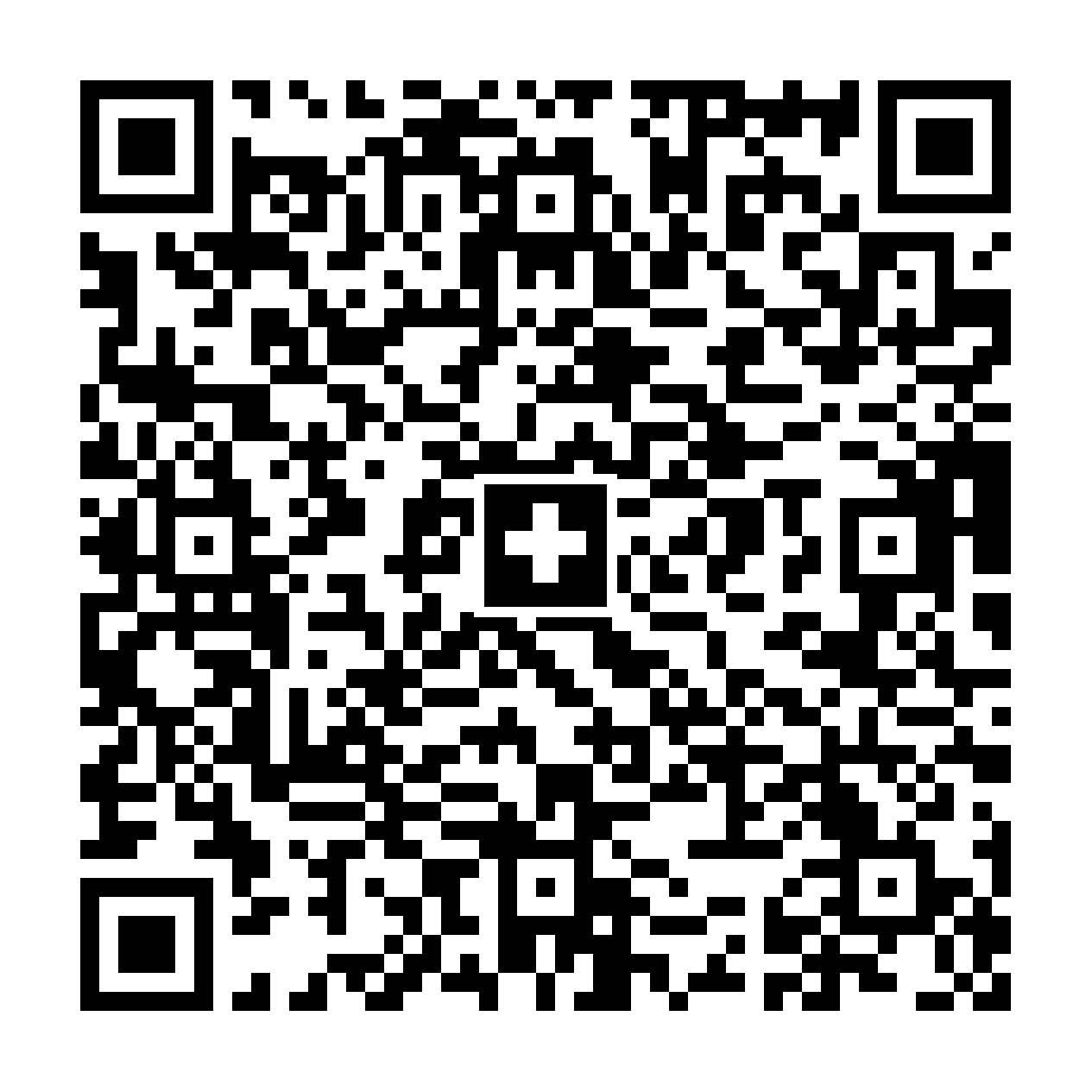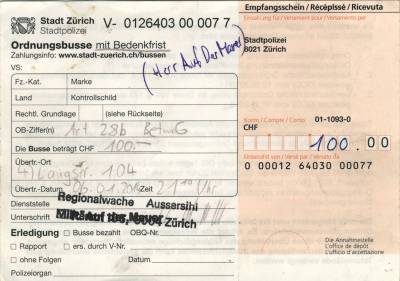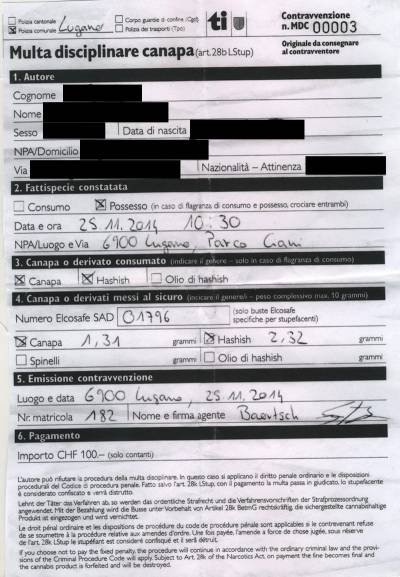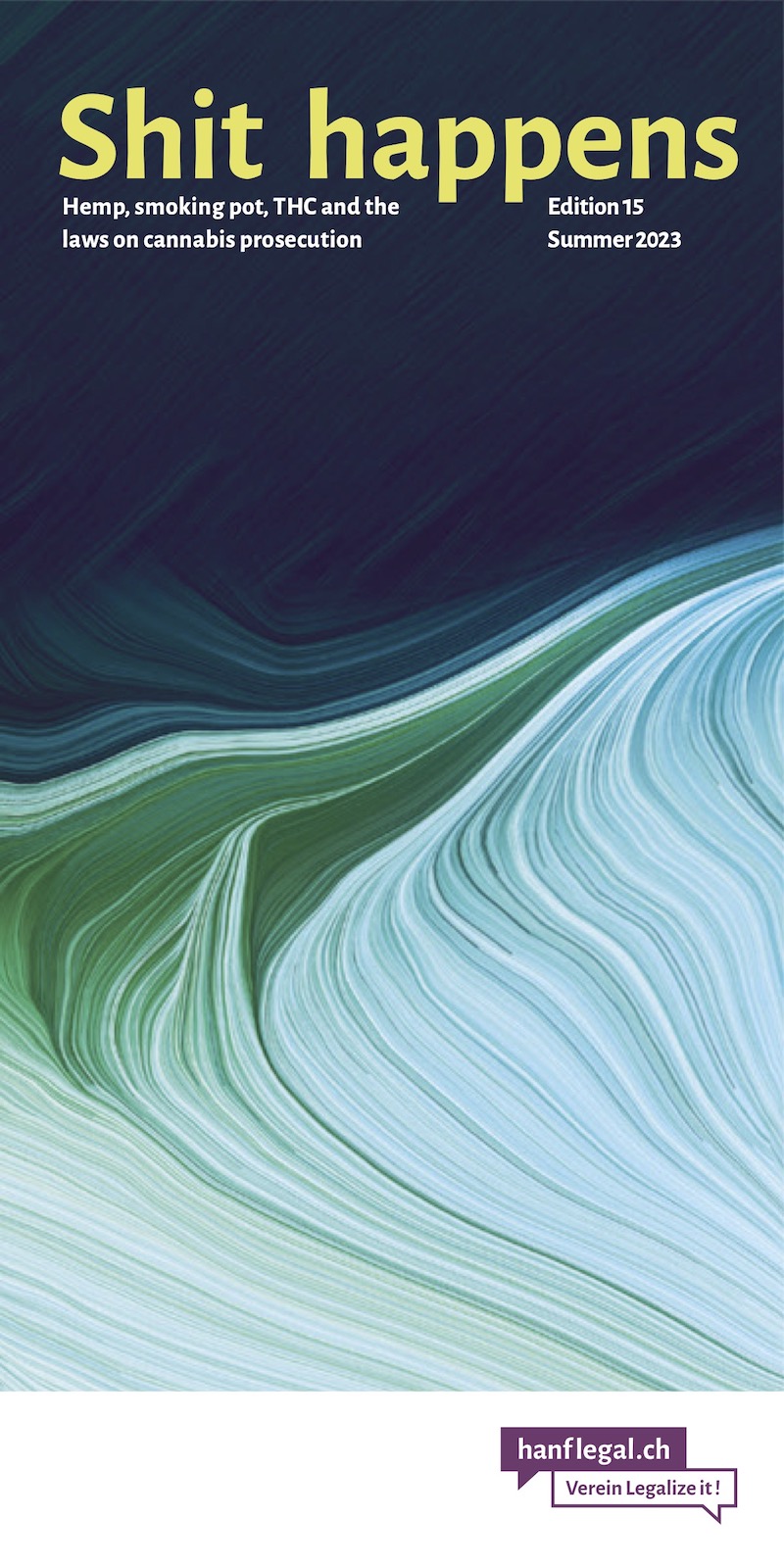- THC & Law:
This is an old revision of the document!
Table of Contents
Little illegal: consumption detected by the police
Laws
Regulatory fine
Regulatory fines Act (OBG), SR 314.1, Art. 2: Cantons determine the authority, Art. 3: Offence itself determined, Art. 4: Minimum 18 years of age
Ordinance on regulatory fines (OBV), SR 314.11, Annex 2/Fine List 2, Chapter VIII, Item 8001: Unauthorized consumption of narcotics of the effect type cannabis (Art. 19a No. 1 NarcA) ⇒ 100 francs. In the PDF (2021) on page 32
Light case
Narcotics Act NarcA, SR 812.121, Article 19a, Paragraph 2, in PDF (2021) on page 17.
Conditions
The regulatory fine can only be issued if the police authority has been authorized by the canton to do so, the police have determined the consumption themselves, less than 10 grams of cannabis are involved, no other crimes have been committed and the person is an adult.
Tips
It is best to never walk around with more than 10 grams. If someone smokes a joint in public and is caught by the police, they should only admit to that joint and refuse to answer questions about further consumption or lie, otherwise due process will kick in.
Penalties
100 francs is the tariff for smoking pot when detected by the police. This amount is valid for the whole of Switzerland. No fees will be charged and in case of repetition there will be no increase. Any material and also the joint will be seized and destroyed.
Little illegal: consumption detected by the police
Inaccurate media information
Headlines such as “Wer kifft, zahlt 100 Stutz” (Blick), “100 Franken für Cannabiskonsum” (NZZ), “Busse für Kiffer soll 100 Franken betragen” (Tagi) suggested at the introduction in 2013 that generally only a regulatory fine is to be feared if someone smokes pot. The limit of 10 grams was frequently mentioned, but hardly that this amount is exempt from punishment.
That's when it didn't really become clear what the issue was. It's not about smoking pot in general, that is and remains a contravention, which has to be dealt with in due process (police questioning, protocol, report; then another body issues a fine with fees, in case of repetition this becomes higher, see here).
Only for consumption detected by the police
The provisions on regulatory fines only apply to consumption determined by the police themselves. Specifically, the smoking of a joint in public, possibly on a visible balcony or in the garden. If the police have determined this consumption themselves and do not find more than 10 grams during the search of the smokers (according to the law, these are not punishable, quasi legal), then they can punish this consumption themselves directly with a regulatory fine (OB) of 100 francs.
Limited applicability
However, this only applies to adults (juveniles must still be reported “normally”) and as long as no other illegal acts have been committed.
Thus, the regulatory fines are only relevant for a small part of the possible illegal acts around THC. But if someone falls into this category, then a regulatory fine à 100 francs is still a cheek, but clearly better than a report with a fine and fees of 200 to 1'000 francs.
Cantonal differences
The canton of Bern did not take advantage of this option to simplify the prosecution of consumers and preferred to continue to prosecute (only 196 regulatory fines in 2017), while the canton of Zurich made active use of this tool (3,053 regulatory fine in the same year). These are stark differences in implementation. Incidentally, a total of 18,146 cannabis regulatory fines were issued throughout Switzerland in 2017 (both for detected consumption and for possession of a minor quantity without consumption).
Collapse of the regulatory fines
After the Federal Court confirmed the impunity of possession of a minor amount, police forces could no longer issue OB for it. Therefore, the number of OB has decreased massively from 2018 (see statistics). 2016 was the peak with 19'766 issued OB, in 2020 it was only 4'013. So tens of thousands were wrongly fined before!
Are there any other suspicious facts?
The police can still decide that in a specific case there is more to it than just the joint and the piece of hash and that further clarifications “must” be made. In this way, such cases can also lead to ordinary proceedings.
Because, as it says in a presentation of the Zurich city police: “The regulatory fine procedure is excluded (…) if at the same time other violations against the NarcA (…) are present, which cannot be punished in the regulatory fine procedure (e.g. continuous consumption).”
One thing is certain: anyone who honestly tells the police about past consumption can and will very well be reported.
Regulatory fine as an optional provision
We cannot recognize a legal claim to punishment with a regulatory fine. However, the opposite is possible; everyone is allowed to say: “No, I don't want a regulatory fine from the police, but to be reported in the normal procedure”. In this way, those affected can also drag the whole thing on through the instances. However, this rarely brings anything, because the costs increase enormously.
The cantons must implement them
Although the provisions on regulatory fines are laid down in the nationwide law and ordinance on regulatory fines, the cantons must implement prosecution in concrete terms, which means that cantonal provisions are also required. Only these cantonal decisions authorize certain police bodies to issue regulatory fines. For example, the Valais municipal police did not have this authority for the first few years and thus issued notices as before, while the Valais cantonal police already issued regulatory fine.
In the canton of Bern, only uniformed police officers may issue regulatory fines, while in many other cantons all members of an authorized authority may do so.
And the "easy case"?
The NarcA allows to stop the procedure in “light cases” or to end it with a warning, i.e. without any penalty. This provision could be applied by the authorities, but unfortunately they do so very rarely.
This would be exactly the right approach: for reasons of the rule of law and on the basis of constitutional personal liberties, the authorities should apply this provision of the NarcA widely. But this has not (yet?) reached the police, the municipal judges' offices, the governors' offices and the public prosecutors' offices!
Development of cannabis regulatory fines
- The regulatory fines were introduced on 1.10.2013. As long as a canton had not created a legal basis for the cannabis regulatory fines, they could not be applied in this canton. In summer 2013, only the cantons of Valais and Schaffhausen had announced this implementation.
Examples of regulatory fines
From Ticino 2021
From Zurich 2014
From Ticino 2014
Regulatory fines in the media (as of Oct. 2013)
- Police fine CBD cigarette smoker (20min.ch, 23.8.17)
- Tougher penalties called for: Are stoners in for it? (watson.ch, 22.2.17)
- Inconsistent implementation of the regulatory fine procedure for cannabis use (Sucht Schweiz, 2.2.17)
- Those who get caught still get a regulatory fine (Blick & Blick am Abend, 17.8.16, Legal (CBD)weed is still punished with a fine )
- Basel already close to impunity (Basler Zeitung, 22.10.14, A look back at one year regulatory fines and another variation on dealing with the minor amount)
- Different approach in Zurich and Bern (Blick am Abend, 15.4.14)
- Since October, only 17 stoners have been fined 100 francs in Basel (Basellandschaftliche Zeitung, 23.1.14)
- More than 20 times more potheads are fined in Zurich than in Basel (Basellandschaftliche Zeitung, 12.11.13)
- Drug debate: More cannabis fines in Zurich than in Basel (NZZ, 7.11.13)
- Not all cantons punish potheads equally consistently (20 Minuten, online/print 29./30.10.13)
- Basel police hand out fines for stoners (Radio SRF 1, Regionaljournal Basel & Baselland, 25.10.13)
Support our work with a donation:
Bank transfer
Account number (IBAN):
CH02 0900 0000 8709 1354 3
Full account details
Or scan this QR code with your eBanking App (ZKB, Revolut, Postfinance, …):

Or open/share the QR code as PDF file with your eBanking App.
Credit card
Donate via credit card
Verein Legalize it!
Quellenstrasse 25
8005 Zürich
Threema ID 7NH65RBY
Don’t miss anything! Follow us on social media:




